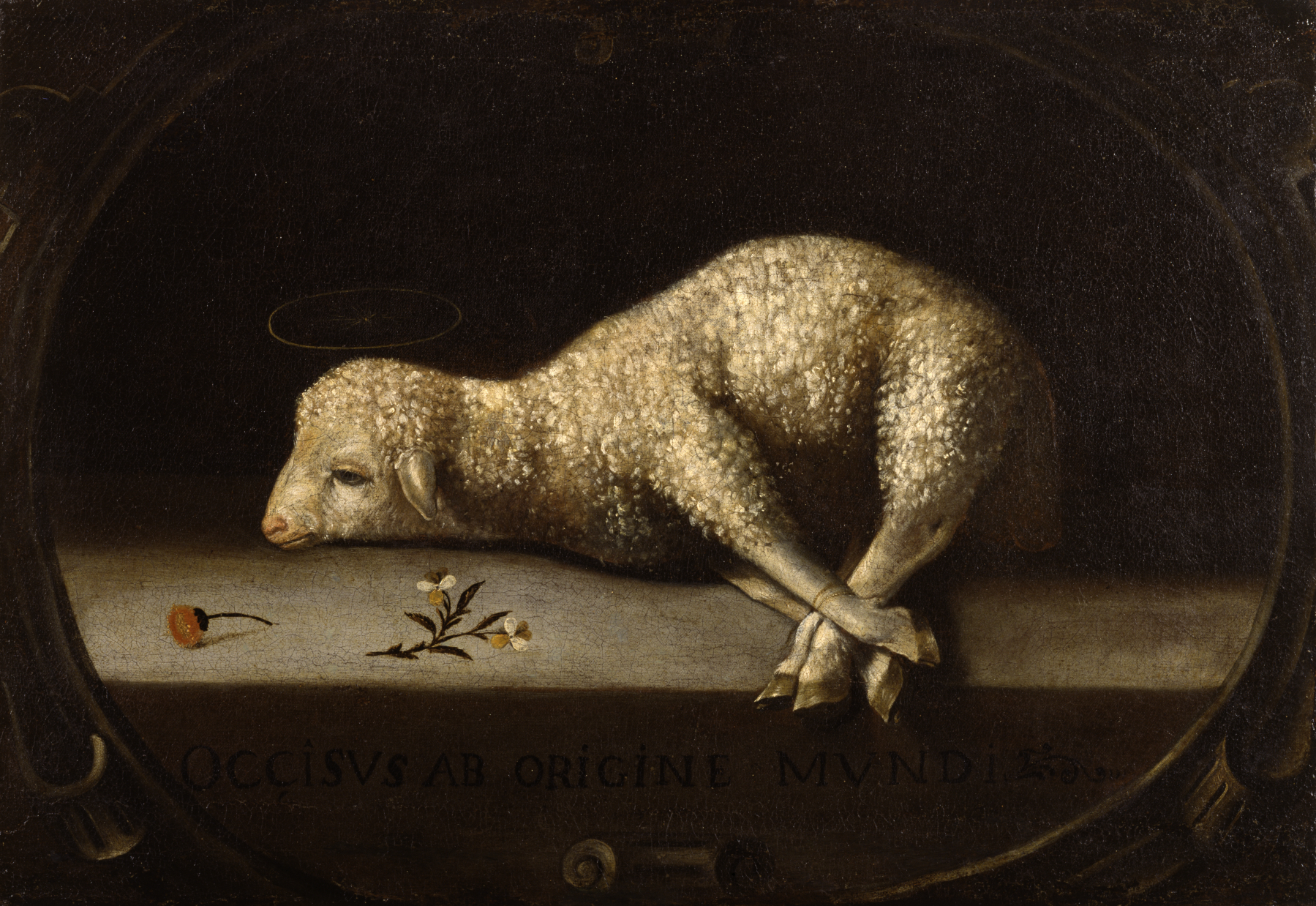John the Baptiser turns and sees his cousin, the Messiah, walking towards him along the water’s edge. His face lights up with joy-filled delight, and he bellows out the redemptive and victorious proclamation, “Behold, the Lamb of God, who takes away the sin of the world!” (John 1:29). For the Judaeans of the day, John’s proclamation was unforgettable.
There were many lambs for sacrifice, but Jesus is the ultimate, superior lamb, who, unlike other sacrificial lambs, “takes away” or “blots out” the sin of the world. The verb αἴρων, “takes away,” in the present tense with a future force, and ἁμαρτίαν, “sin,” in the singular, refers to the utter removal of the totality of the world’s sin as well its underlying power. The Passover and its sacrificial lamb in the Old Testament narrative extend towards its fulfillment in the New Testament Eucharist and then towards the eschatological hope and eschatological kingdom (Revelation 5:5-10), pulling together the past and future in Christ’s eucharistic supper.
In John 1:29, John the Baptist is not primarily thinking about sin as a collection of individual misdeeds but rather something far more serious and ominous. He proclaims that this Lamb of God takes away the sin of the world. This sin is an active, malevolent agency bent upon despoiling, imprisonment, and death, seeking to utterly undo God’s purpose. Jesus himself tells of the power of sin when he says, “I say to you, everyone who practices sin is a slave to sin.” (John 8:34). Likewise, Paul writes, “For we have already charged that all, both Jews and Greeks, are under sin.” (Romans 3:9b). Sin is our cosmic enemy! To be sure, individual sins are a grave matter in the New Testament (see Mark 1:4-5; 2:5; 1 Cor. 15:3). And yet, it is not enough for us to say that we are held in bondage to sin, for the result is that we were active, enlisted agents of sin.
Before the atoning work of Christ, all humankind was enslaved by the strange power of sin, which had to be destroyed, liberating people from its control. Sin is more than wrongdoing or grievous actions, it is an infectious illness that has enslaved us in its dark grip, and so sin is not ultimately something we commit, but rather something that we are in. And yet there is no escape from this deathly power, apart from the atoning work of Jesus Christ in his crucifixion and resurrection. Moreover, as God’s Lamb, Jesus takes upon himself the sin, not merely of Israel, but of the entire world. The idea that the Messiah would suffer for the totality of the sins of the world and overcome sin’s power, rather than merely Israel’s sin, was foreign to Judaean first-century ears; but John makes clear that Jesus came to save the entire world (John 3:17; 1 John 2:2) and that he is its Saviour (John 4:42; 1 John 4:14).
While Jesus certainly dies for the forgiveness of our individual sins, John’s statement is so much more powerful because it describes humanity’s dreadful predicament under the dark power of sin and the indescribable power of Christ’s sacrificial death.
At the start of John’s Gospel, the Baptist proclaimed, “Behold, the Lamb of God who takes away the sin of the world.” (John 1:29). Now, just before this Lamb is to be sacrificed, Pilate brings him out having been flogged, dressed in a thorny crown and a purple robe, and proclaims, “Behold the man!” (John 19:5). Nine verses later, he proclaims to the Judaeans, “Behold your King!” (John 19:1-14). If only Pilate had understood what he declared in jest! Jesus is both the Lamb of God and the victorious King (Revelation 5:5-13).
The gospel is not merely about going to heaven when we die, but it’s about God becoming King in the person of Christ. The word εὐαγγέλιον, “gospel,” is usually translated as “good news.” The idea comes from the Roman emperors during the time of the New Testament. They would send out good news proclaiming some saving message that would bring about change for the good of the Roman people, like an announcement of victory.
This kingdom was established through the life, death, and resurrection of Jesus Christ and has infiltrated our world. This royal announcement of good news is that Jesus, the Messiah of Israel, has now been enthroned as the new ruler of this world. The power of God’s kingdom comes upon us and begins to work in our lives when we put our faith in Christ and his saving work. Indeed, Jesus proclaimed, “Repent, for the kingdom of heaven is at hand.” (Matthew 3:2). At the consummation of all things, God’s reign through Jesus will be made complete, bringing about his perfect justice and peace upon a renewed earth.
Salvation is not the gospel itself; the gospel is the power for salvation (Romans 1:16–17). Jesus conquered sin by living a righteous life and dying a substitutionary death on our behalf. He overcomes death in his resurrection, thereby dethroning Satan and setting himself up as the legitimate new Ruler of the world. While our rebellion and sin against God resulted in our alienation from him, those who believe in the gospel and Christ’s work of salvation have no condemnation (Romans 8:1) and may experience everlasting joy and fellowship with God. This gospel demands a response from us—sincere faith and repentance, without which we would experience eternal death.
Short Bio: Dr. Robert Falconer ([email protected]) is the Masters and Doctoral Research Coordinator overseeing all aspects of student research at the M.Th. and Ph.D. level.




